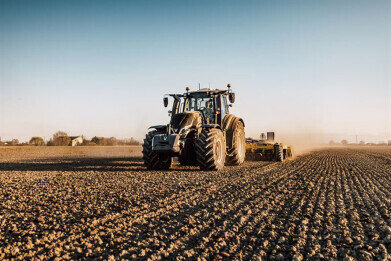Air clean up
Valtra cuts over 15,000 tons of greenhouse gas emissions at Suolahti factory with 5 million liters of Neste MY Renewable Diesel
Jun 07 2024
Valtra, a renowned Finnish tractor manufacturer under AGCO Corporation, has made a significant environmental breakthrough by using 5 million litres of Neste MY Renewable Diesel™ at its Suolahti factory. This renewable diesel is utilised as a factory-fill fuel, in testing, and in factory forklift trucks. By opting for Neste’s renewable diesel over fossil fuels, Valtra has successfully prevented over 15,000 tons of greenhouse gas emissions from entering the atmosphere. This reduction is comparable to the emissions produced by a Valtra T Series tractor running continuously for 390,000 hours at 30 to 40% engine load, considering the full life cycle emissions of the fuel.
Valtra and Neste have been in collaboration since 2017, marking Valtra as the first tractor factory globally to use Neste MY Renewable Diesel, which can reduce greenhouse gas emissions by up to 75-95% over its life cycle compared to fossil diesel. Neste MY Renewable Diesel is derived from 100% renewable raw materials, such as used cooking oil and animal fat from food industry waste. New Valtra tractors powered by this renewable diesel are exported from Suolahti to over 75 countries worldwide.
“At Valtra, sustainability is a core commitment. Our initiatives include emission reduction, energy consumption optimisation, waste management, and resource efficiency. By choosing Neste MY Renewable Diesel as our first fill fuel, we have significantly cut our emissions and demonstrated to our global customer base of farmers that their tractors can operate on renewable diesel. Even older Valtra tractors run efficiently on this fuel,” stated Mikko Lehikoinen, Managing Director of Valtra EME.
Joni Pihlström, Vice President of Marketing & Services at Neste, expressed pride in the long-standing partnership with Valtra. He emphasised Neste’s goal to help customers reduce their greenhouse gas emissions by at least 20 million tons annually by 2030. He also highlighted the expansion of their collaboration through the Finnish Future Farm project, a three-year EU-funded initiative at the bioeconomy campus in Saarijärvi, Finland. This project aims to develop and implement solutions that minimise greenhouse gas emissions and enhance the economic viability of grass and grain farming. “To combat climate change, we need both existing and new solutions,” Pihlström added.
Events
Apr 08 2025 Targi Kielce, Poland
Apr 08 2025 Bahrain
Apr 10 2025 Beijing, China
Apr 10 2025 Beijing, China
Apr 15 2025 Moscow, Russia














